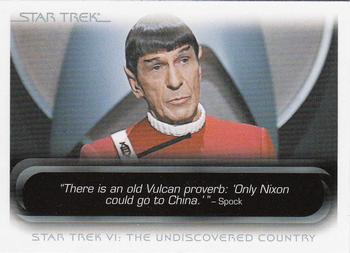PoliticalChic
Diamond Member
- Thread starter
- #121
10 years ago PoliticalChic got all of her posts from cutting and pasting other people's thoughts, other people's words.
10 years later she's still doing it.
Yet you still can't dispute any of 'em.
Follow along with the video below to see how to install our site as a web app on your home screen.
Note: This feature may not be available in some browsers.
10 years ago PoliticalChic got all of her posts from cutting and pasting other people's thoughts, other people's words.
10 years later she's still doing it.
Conservative (or Liberal) refers to a political ideology.That liar loves to cloud the issue.
There was no such term as 'conservative' when the racists pulled the lever. It simply said "Democrat."
Conservative (or Liberal) refers to a political ideology.
Republican (or Democrat) refers to the name of a political Party.
You're not smart.
Those Conservative Democrats became Conservative Republicans after the Civil Rights bill passedThey were democrats trying to maintain white power but they get a pass for being "conservative" democrats. How does that work?
Those who lynched blacks people were Conservatives trying to maintain white power
Different PartyThey were still Democrats. Do not confuse the Democrats making a huge shift in the 1960's with their still being the party that opposed most of those civil rights bills for decades.
Different Party
Republicans are different than they were in 1860 also
Slavery existed in the South for 200 years before the Democratic Party was formed
Republicans of the 1960s had a liberal wing with Nelson Rockefeller, Jacob Javits, Arlen Spector. They also had an ultra conservative wing led by Barry GoldwaterBut the Republicans changed little, while the Democrats in the 1960's made a hard change from Conservative to ultra-liberal. the more "Popularist" of the members stayed with the party as they made the change, while others changed as the Republicans were now the more conservative of the two.
Republicans of the 1960s had a liberal wing with Nelson Rockefeller, Jacob Javitts. They also had an ultra conservative wing led by Barry Goldwater
In 1980, Reagan solidified the Conservative takeover of the party and drove out the liberals
Reagan and Goldwater had a long battle with Rockefeller for control of the party.And the funny thing is, you are not the first I have heard make that claim. But tell me, what Liberals did President Reagan "drive out" of the party? I have asked this before, and interestingly have yet to get a real answer.
No, you're ignorant about politics. You think what someone calls themselves is more important than what someone believes. That is superficial and shallow. But mostly ignorant.Just somewhere between 'smart' and you.
Reagan and Goldwater had a long battle with Rockefeller for control of the party.
It was Newt Gingrich who drove out the Liberals and moderates
Funny how rightwingers see giving voting rights to Blacks as "driving out conservatives".as the Democrats were the ones that drove out most of their Conservatives.
Only in their rhetoric.He was also a proponent of lavish spending, something that the newer Republicans moved against by the 1970's.
Funny how rightwingers see giving voting rights to Blacks as "driving out conservatives".
Nixon simply didn't give a crap about domestic issues outside of winning elections, having no ideology, and wanted to focus on foreign policy.

I would not say that. You can not forget he also created the EPA, passed some of the most sweeping health care initiatives of the era, and started the "Treatment over incarceration" movements of the late 1960's and early 1970's. As well as increasing trade and cooperation with Mexico.
Even my Aunt, who is a hard-core Democrats admits she liked a lot of the things that President Nixon did when he was in office. Most of which is largely forgotten, other than he opened relations with China.


 theamericansun.com
theamericansun.com
No, you're ignorant about politics. You think what someone calls themselves is more important than what someone believes. That is superficial and shallow. But mostly ignorant.